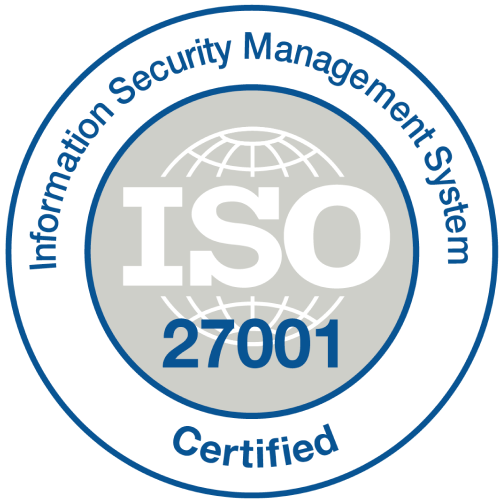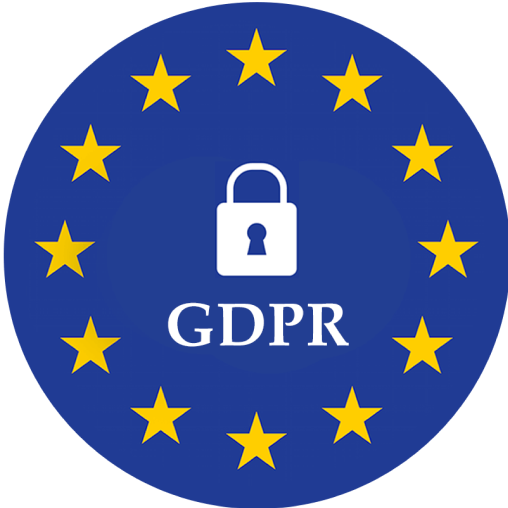
What is a human resources generalist?
A Human Resources (HR) Generalist is the Swiss Army knife of the HR world—versatile, resourceful, and essential for any business. Unlike specialists who focus on one area, HR Generalists handle multiple HR functions, ensuring smooth operations across recruitment, employee relations, benefits administration, compliance, and even training and development programs.
They serve as the bridge between employees and management, making sure both sides stay aligned and engaged. Their role is dynamic, often shifting based on company needs. One day, they might be onboarding new hires, ensuring they feel welcomed and informed about company policies.
Next, they could be resolving workplace conflicts or updating HR policies to keep them up to date with changing labor laws. Because they manage such diverse tasks, HR Generalists need a broad skill set that includes problem-solving, communication, and adaptability.
In small to mid-sized companies, they often serve as the entire HR department, juggling multiple responsibilities. In larger organizations, they work alongside HR specialists and managers, ensuring that human resources strategies are implemented effectively.
Whether handling payroll issues, conducting exit interviews, or planning employee engagement initiatives, HR Generalists play a crucial role in maintaining a productive and compliant work environment. Their thorough knowledge and ability to balance administrative duties with employee advocacy makes them indispensable in today’s workplace.
Key takeaways from the blog
- An HR Generalist manages multiple HR functions, including recruitment, employee relations, compliance, and payroll processing. Their role is essential in shaping workplace policies and maintaining a productive workforce.
- Strong communication, organization, decision-making, and confidentiality are key HR Generalist skills. With experience and certifications, professionals can advance to managerial or specialized HR roles.
- In 2025, HR Generalists will focus on digital transformation, employee well-being, and strategic workforce planning. Staying updated with HR tools and industry trends is crucial for success.
What does an HR generalist do?
An HR Generalist wears many hats, balancing administrative tasks with employee engagement. Their role is all about ensuring that the workplace functions smoothly while keeping both company policies and employee needs in check. From hiring to compliance, they manage multiple aspects of the human resources department, making them a key asset in any organization.
1. Recruitment and onboarding
HR Generalists handle job postings, screen resumes, and schedule interviews. They coordinate with hiring managers to find the right talent for open positions. Once hired, they oversee the recruitment and onboarding process to ensure a smooth transition. Their goal is to make new employees feel welcomed and prepared from day one.
2. Employee relations and conflict resolution
They act as mediators between employees and management, addressing concerns and disputes. Whether handling grievances, project management or improving workplace culture, they foster a positive environment. Their role includes investigating complaints and ensuring fair resolutions. A strong HR Generalist promotes trust and open communication.
3. Benefits and payroll administration
HR Generalists oversee employee benefits, from health insurance to retirement plans. They assist employees with enrollment, claims, and policy clarifications. Payroll processing, tax deductions, and compliance with wage laws also fall under their scope. Ensuring timely and accurate paychecks keeps morale high.
4. Compliance and policy implementation
They ensure that company policies align with labor laws and industry regulations. Updating employee handbooks and conducting compliance training are part of their role. They help businesses avoid legal pitfalls by staying ahead of local employment laws and changes in the law. A proactive HR Generalist safeguards the company from costly violations.
5. Training and development
They identify skill gaps and coordinate employee training and development programs. Organizing workshops, leadership training, and mentorship programs help with career growth. By fostering continuous learning, they enhance employee engagement and retention. Well-trained employees contribute to business success and innovation.
6. Performance management and evaluations
HR Generalists facilitate performance reviews and feedback sessions. They work with managers to set clear expectations and improvement plans. Handling promotions, raises, and employee recognition programs also fall under their duties. Their role ensures fair evaluations and supports career advancement.
HR generalist qualifications
Becoming an HR Generalist requires a mix of education, certifications, and hands-on experience. Employers look for candidates with a solid understanding of HR principles, labor and employment laws and regulations, and workplace best practices. While qualifications may vary by company size and industry, certain educational and professional credentials stand out.
1. Educational background
A bachelor’s degree in human resources, business administration, or a related field is often required. Some employers may accept degrees in psychology or communications if paired with relevant experience. Advanced roles may prefer candidates with a master’s in HR or Organizational Management. A strong educational foundation helps HR Generalists navigate complex workplace issues.
2. HR certifications
Professional certifications can enhance credibility and job prospects. Popular ones include SHRM-CP (Society for Human Resource Management - Certified Professional) and PHR (Professional in Human Resources). These certifications validate knowledge in HR laws, employee relations, and compliance. Many employers prefer or require certified HR employees and professionals for key roles.
3. Industry experience
Most HR Generalist roles require 1-3 years of HR experience in administrative or specialist positions. Internships and entry-level HR assistant roles provide essential exposure. Hands-on experience in recruitment, benefits administration, or employee relations is valuable. Employers prioritize candidates who understand real-world HR challenges.
4. Continuing education
HR professionals must stay updated with changing labor, laws and regulations, HR technologies, and best practices. Attending workshops, online courses, and industry seminars helps build expertise. Platforms like LinkedIn Learning, Coursera, and HR-specific training programs offer relevant courses. Continuous learning ensures HR Generalists remain competitive in the field.
5. Knowledge of employment laws
Understanding labor laws, anti-discrimination policies, relevant employment laws, and workplace compliance is crucial. HR Generalists must be familiar with regulations like EEO, FMLA, OSHA, and wage laws. Keeping up with federal and state legal changes prevents compliance risks. A solid legal foundation helps HR professionals navigate workplace policies effectively.
6. Technical and HR software proficiency
Modern HR relies on HRIS (Human Resource Information Systems), payroll software, and ATS (Applicant Tracking Systems). Proficiency in tools like Workday, ADP, BambooHR, or SAP SuccessFactors is a plus. Digital literacy enhances efficiency in managing employee data, payroll, and recruitment processes. Tech-savvy HR Generalists are more effective in fast-paced workplaces.
HR generalist skills
An HR Generalist must juggle multiple responsibilities while ensuring smooth workplace operations. HR generalist technical skills include soft skills and ability to handle sensitive situations with professionalism. The right skill set allows them to support employees, enforce policies, and contribute to an organization’s success.
1. Organization
HR Generalists manage multiple tasks, from recruitment to compliance tracking. Staying organized ensures that payroll, benefits, and employee records are accurate and up to date. A structured approach helps them prioritize tasks efficiently. Without strong organizational skills, an HR generalist's work operations can quickly become chaotic.
2. Computer literacy
Modern HR relies on HR software, payroll systems, and data management tools. HR Generalists must navigate platforms like Workday, BambooHR, or ADP with ease. Proficiency in spreadsheets, databases, and digital communication is essential. Being tech-savvy streamlines processes and improves efficiency.
3. Verbal and written communication
Clear communication is key when drafting policies, responding to employee concerns, or conducting interviews. HR Generalists must explain complex policies in a way employees understand. Strong written skills help in composing professional emails and documentation. Effective verbal communication fosters transparency and trust.
4. Interpersonal communication
Building relationships with employees, managers, and executives is crucial. HR Generalists act as mediators, balancing employee needs with company policies. Active listening and empathy help in handling workplace conflicts. Strong interpersonal skills create a positive and supportive work environment.
5. Confidentiality
HR deals with sensitive employee data, including salaries, personal records, and legal issues. A breach of confidentiality regarding employee files can damage trust and lead to legal consequences. HR Generalists must handle all information with discretion and integrity. Ensuring privacy fosters employee confidence in HR processes.
6. Compassion
Employees often turn to HR for guidance during workplace challenges. Whether addressing personal concerns or workplace disputes, HR Generalists must show empathy. A compassionate approach strengthens employee morale and retention. Balancing professionalism with understanding makes HR more approachable.
7. Creativity
HR isn’t just about policies—it’s about people and engagement. Creativity helps in designing employee wellness programs, team-building activities, and training sessions. Thinking outside the box improves workplace culture and employee satisfaction. An innovative HR team makes work more enjoyable and productive.
8. Decision-making
HR Generalists often make quick yet critical decisions regarding hiring, terminations, and conflict resolution. They must assess situations objectively and act in the best interest of the company and employees. Strong decision-making skills prevent workplace disruptions and legal risks. Confidence in choices ensures that HR programs and policies are fair and effective.
HR generalist vs HR manager
While both HR Generalists and HR Managers play vital roles in human resources, their responsibilities differ in scope and leadership levels. An HR Generalist handles a broad range of day-to-day HR functions, while an HR Manager focuses on strategy, policy enforcement, and team leadership. Below is a comparison of their key differences:
Top 5 HR generalist activities to try in 2025
As the workplace evolves, HR Generalists must adapt to new trends and technologies to enhance employee experience and organizational efficiency. In 2025, HR will focus on digital transformation, well-being, and diversity to build a more engaged workforce. Here are five key activities HR Generalists should prioritize this year.
- Implement AI-powered recruitment: AI tools can streamline candidate screening, reducing hiring time and bias. Automated systems help HR Generalists identify top talent based on skills and experience. Leveraging AI ensures a more efficient and data-driven hiring process.
- Strengthen employee well-being programs: Mental health and wellness initiatives are now workplace priorities. HR Generalists should introduce stress management workshops and flexible work arrangements. A strong well-being program boosts employee satisfaction and productivity.
- Enhance DEI (Diversity, Equity, and Inclusion) efforts: Building an inclusive culture fosters innovation and collaboration. HR Generalists must implement bias-free hiring practices and inclusive workplace policies. Training programs can also promote awareness and cultural sensitivity.
- Utilize HR analytics for better decision-making: Data-driven insights can improve workforce planning and engagement strategies. HR Generalists should track employee performance, retention, and satisfaction metrics. Analytics help in making informed HR decisions that benefit the organization.
- Gamify employee learning and development: Interactive training methods increase engagement and knowledge retention. HR Generalists can incorporate gamification into onboarding and professional development. Reward-based learning keeps employees motivated to upskill and grow.
The strategic importance of HR generalists in organizations
HR Generalists play a crucial role in shaping workplace culture, ensuring compliance, and supporting employees. Their versatility allows organizations to manage HR functions efficiently while fostering a positive work environment. Here’s why HR Generalists are strategically important in modern organizations.
- Driving employee engagement and satisfaction: HR Generalists create policies and initiatives that improve workplace morale. They manage employee feedback, recognition programs, and career development. A highly engaged workforce leads to increased productivity and lower turnover rates.
- Ensuring legal compliance and risk management: Staying updated on labor laws and company policies is a core responsibility. HR Generalists help organizations avoid legal issues related to employment regulations. Their expertise in compliance minimizes financial and reputational risks.
- Supporting workforce planning and talent acquisition: They play a key role in identifying workforce needs and hiring the right talent. By improving recruitment strategies, HR Generalists ensure a steady talent pipeline. A well-planned hiring approach strengthens long-term business growth.
- Enhancing workplace culture and DEI initiatives: HR Generalists foster inclusive workplaces through diversity, equity, and inclusion efforts. They develop unbiased hiring processes, training programs, and culture-building activities. A strong DEI strategy promotes innovation and collaboration.
- Streamlining HR processes through technology: They leverage HR software to automate administrative tasks like payroll and onboarding. Technology adoption enhances efficiency, reduces errors, and saves time. Digital HR solutions also improve employee experience and data management.
- Managing conflict resolution and employee relations: HR Generalists mediate disputes, ensuring fair treatment and open communication. They create policies that promote teamwork, mutual respect, and conflict resolution. A well-managed workplace reduces disruptions and improves job satisfaction.
- Aligning HR strategies with business goals: They bridge the gap between HR functions and organizational objectives. By analyzing workforce trends, HR Generalists support leadership in making strategic decisions. Their role is key to maintaining a competitive and sustainable workforce.
Challenges faced by HR generalists and how to overcome Them
HR Generalists juggle multiple responsibilities, making their role both rewarding and challenging. From managing compliance risks to managing employee relations to handling employee conflicts, they must navigate complex workplace dynamics daily. Here are six key challenges they face and strategies to overcome them.
- Balancing multiple HR responsibilities: HR Generalists manage hiring, payroll, compliance, and employee relations simultaneously. This workload can lead to burnout and inefficiencies if not handled strategically. Prioritizing tasks, using HR software, and delegating where possible can ease the burden.
- Keeping up with changing employment laws: Labor laws and compliance requirements evolve constantly, making legal risks a major concern. Failing to stay updated can lead to penalties and employee disputes. Regular legal training and subscribing to HR compliance updates help HR Generalists stay informed.
- Handling employee conflicts and grievances: Mediating disputes while maintaining fairness is a delicate task. Unresolved conflicts can lead to workplace toxicity and decreased morale. Implementing clear conflict resolution policies and active listening strategies fosters a more harmonious work environment.
- Managing employee engagement and retention: High turnover and disengaged employees can disrupt workplace productivity. HR Generalists must create effective engagement strategies and career development plans. Regular employee feedback, recognition programs, and mentorship initiatives improve retention rates.
- Adapting to HR technology and automation: With HR systems evolving, keeping up with new software can be overwhelming. Lack of digital proficiency can slow down administrative processes. Investing in HR tech training and leveraging automation for repetitive tasks enhances efficiency.
- Maintaining confidentiality and trust: HR Generalists handle sensitive employee data, making confidentiality a top priority. Breaches in trust can damage workplace relationships and expose companies to legal risks. Establishing strict data security protocols and ethical HR practices ensures credibility.
What tools do HR generalists use?
HR Generalists rely on a variety of tools to manage recruitment, payroll, compliance, and employee engagement efficiently. These tools streamline processes, reduce manual workload, and improve decision-making. Here are five essential tools that every HR Generalist should use.
- HR management systems (HRMS): HRMS platforms like BambooHR and Workday centralize employee data, payroll, and benefits. These systems automate administrative tasks, reducing errors and improving efficiency. With built-in compliance tracking, HR Generalists can ensure adherence to labor laws.
- Applicant tracking systems (ATS): Recruiting tools like Greenhouse and Lever help HR Generalists streamline hiring. ATS platforms track applications, automate interview scheduling, and filter top candidates. This ensures a more efficient, data-driven recruitment process.
- Performance management software: Tools like Lattice and 15Five allow HR Generalists to monitor employee progress. They facilitate real-time feedback, goal-setting, and performance reviews. Such tools enhance productivity and employee development.
- Employee engagement and feedback platforms: Surveys and engagement tools like CultureMonkey measure employee satisfaction. HR Generalists use these insights to improve workplace culture and retention. Regular feedback helps in making data-backed HR decisions.
- Payroll and compliance software: Platforms like Gusto and ADP ensure smooth payroll processing and tax compliance. They automate salary calculations, deductions, and benefits administration. This reduces manual effort and minimizes payroll errors.
How to become an HR generalist?
Becoming an HR Generalist requires a mix of education, experience, and key skills to handle diverse HR functions. Whether you’re starting fresh or transitioning from another role, following a structured path can help you succeed. Here are the steps to becoming an HR Generalist.
- Obtain the right education: A bachelor’s degree in human resources, business administration, or a related field is essential. Some employers may accept degrees in psychology or sociology with relevant HR coursework. Advanced certifications can further strengthen your qualifications.
- Gain foundational HR knowledge: Understanding employment laws, payroll systems, and compliance requirements is crucial. HR Generalist courses and self-study resources help in building this foundation. Keeping up with HR trends also enhances your knowledge.
- Gain hands-on HR experience: Entry-level HR roles, such as HR Assistant or Coordinator, offer practical exposure. Internships, volunteer HR work, or cross-functional HR projects can also be valuable. Practical experience helps in mastering HR Generalist roles and responsibilities.
- Earn HR certifications: Certifications such as SHRM-CP or PHR enhance your credibility and job prospects. They validate your expertise in HR best practices, compliance, and workforce management. Employers often prioritize candidates with specialized HR credentials.
- Develop essential HR generalist skills: Strong communication, problem-solving, and decision-making abilities are crucial. HR Generalist skills like confidentiality, organization, and adaptability help manage diverse HR tasks. Upskilling through online courses or mentorship is beneficial.
- Familiarize yourself with HR technology: HR professionals use software for payroll, recruiting, and performance management. Learning HRMS, ATS, and employee engagement tools increases efficiency. Many companies prefer HR Generalists who are tech-savvy.
- Network and apply for HR generalist roles: Joining HR associations and attending industry events helps build connections. Engaging with HR communities on LinkedIn can uncover HR Generalist jobs and opportunities. Applying for hr generalist remote and in-office positions broadens career prospects.
FAQs
1. What is the role of a HR generalist?
An HR Generalist JD involves various human resources functions, including recruitment, payroll, employee relations, compliance, and benefits administration. They act as a bridge between employees and management, ensuring workplace policies align with organizational goals and regulations. Their role requires adaptability, problem-solving, problem-solving skills and strong communication skills to manage multiple HR responsibilities effectively and efficiently.
2. Is HR generalist a high position?
An HR Generalist is a mid-level position, offering broad HR responsibilities but without the seniority of an HR Manager or Director. They oversee daily HR functions and provide strategic input, but typically report to an HR Manager or Director. While not an executive role, it is an essential, well-respected position with growth opportunities in human resources management and leadership.
3. Is an HR generalist a good job?
Yes, being an HR Generalist is a great job for those who enjoy diverse HR functions and problem-solving daily. It provides exposure to multiple HR areas, making it an excellent stepping stone for career advancement and specialization. The role offers job stability, career growth, and the opportunity to impact workplace culture positively and improve employee satisfaction.
4. Is an HR generalist entry-level?
No, an HR Generalist is typically a mid-level role requiring prior HR experience in various functions. Most companies prefer candidates with an HR background, such as working as an HR Assistant or Coordinator first. However, strong educational qualifications and HR certifications can help professionals transition into this role more quickly and successfully.
5. What position is an HR generalist?
An HR Generalist is a mid-level HR professional responsible for managing multiple HR functions efficiently. They work closely with employees and leadership to implement policies, handle compliance, and support workforce development and retention. This role is ideal for professionals looking to gain comprehensive HR experience and advance into managerial positions in the future.
Empower, Engage & Succeed with the Complete Employee Engagement Software
DISCOVER NOWGet breaking news and curated stories delivered to your inbox every day. Be the first to know what’s happening around the world



.svg)















.png)

